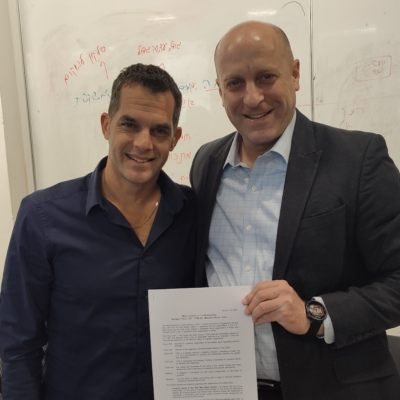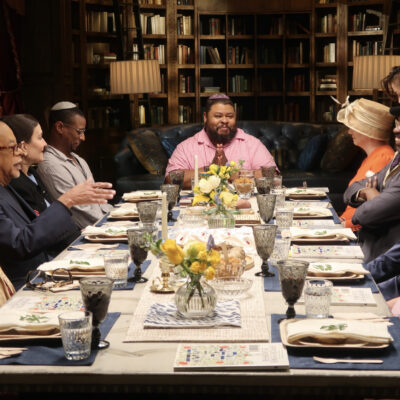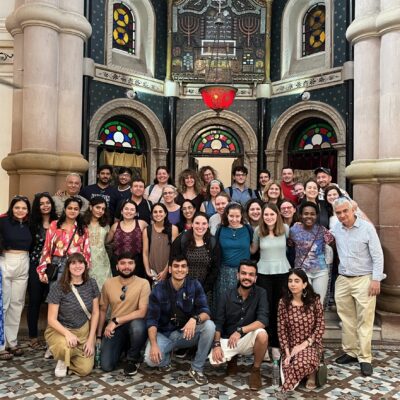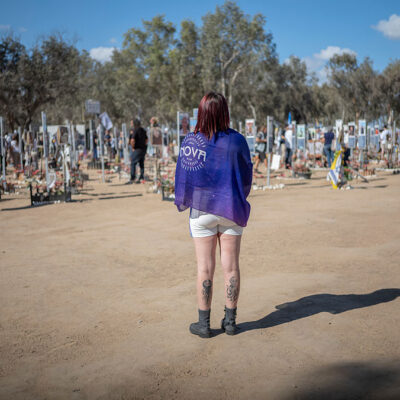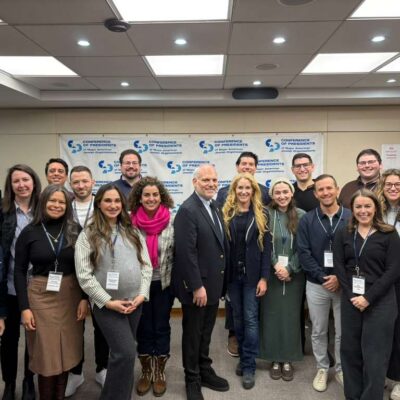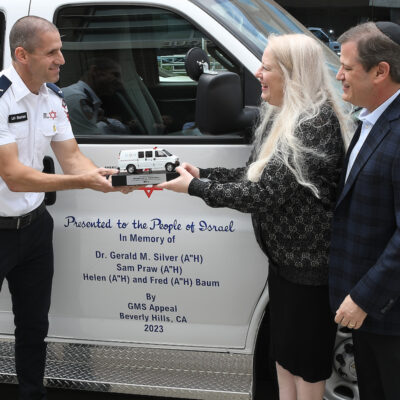Opinion
LESSONS IN BRAVERY
Courage: An indispensable quality of leadership
Outgoing Ford Foundation President Darren Walker argues in a recent New York Times guest essay titled “There is No Leadership Without Risk” that prevalent American culture “actively discourages the courage” needed for impactful leadership, ultimately undermining the effectiveness of leaders.
As a student of nonprofit leadership, this insight aligned with my own understanding of courage as a defining characteristic of great leaders. In fact, a close reading of Jewish Communal Leadership: Lessons Learned from Leading Practitioners (jewishleadershipbook.com), my recent book, is replete with examples of courageous leadership from the nine outstanding leaders interviewed in the book, ones that can teach and inspire us.

Getty Images
Here are just a few to use in your own work:
Speaking up and speaking truth to power
As a 28-year-old newly minted rabbi, Denise Eger arrived in Los Angeles as the HIV/AIDS crisis was in full bore, with a Jewish community “not good” in its response to the crisis. “Even the local mortuaries didn’t want to touch Jews with HIV,” she told me. She asks: “What does the rabbi do when there is injustice?” Her answer: “The rabbi’s job is to speak up and to speak truth to power, even at great personal risk and great personal cost.” As a pioneering LGBTQ rabbi, Eger worked with Jewish communal leaders to train the funeral homes and cemeteries on the truth about AIDS. She concludes: “I had to learn on the job how to become an advocate for my community. That’s the first part of leadership.”
Leadership in crisis — lessons from our history
“What about leadership at a time of crisis?” I asked Dan Libenson, CEO and president of the Lippman Kanfer Foundation for Living Torah. “There are different kinds of crises,” Libenson says. “In the health-care world, there’s this idea of predictable crises. If you’re trained as a doctor or a paramedic and you come across a person having the crisis of a heart attack, you’ll know exactly what to do because heart attacks happen so often that we’ve turned the response to that crisis into a habit – ABC: airway, breathing, circulation, right? It’s clear what to do. So we should have a certain kind of leadership training for expected, predictable crises. There are other kinds of crises that are unique to the circumstances, something that couldn’t have been predicted.”
Libenson then makes this provocative statement: “It feels to me that if how to lead in a crisis isn’t discoverable from Judaism itself, then I wonder, what’s the point of holding on to Judaism? I think it is in there. We’ve had so many crises as a people that much of our literature comes out of those crises. My job now, running a foundation dedicated to applied Jewish wisdom, operates on a premise that says, ‘If we could really mine the stuff of Judaism – a set of stories, a set of rules and regulations and habits that ought to help people live good lives, not just in times of peace, but also in times of crisis – that would be something worth preserving. What story in our Jewish literature do we have that sounds a lot like the crisis we’re facing now?” Each contributor in Jewish Communal Leadership offers examples of leadership lessons learned from the stories of crises overcome throughout the history of the Jewish people.
Lay-professional partnership and taking risks
Barry Shrage, the pioneering past CEO of the Combined Jewish Philanthropies of Boston, tells the story of how he and a lay leader created the Boston-Haifa Connection long before the national federation system created Partnership 2000 linking Diaspora communities with Israeli communities. “We created the model for which the system condemned us,” Shrage reports. “We decided to put money into economic development in Israel, which they completely rejected. One of the other Federation directors called me one day and said, ‘You know, if you don’t follow the norms of the system, we’re going to sanction Boston.’ And I said, ‘People have been trying to sanction Boston since 1774! It didn’t do them any damn good. And it’s not going to do you any damn good.’ To risk that, you better have lay leaders and the community firmly, firmly, firmly connected to this new idea that you want to pursue and engage them deeply in making it happen.” The importance of lay-professional partnership in leading an organization is a common theme throughout the book.
Managing in uncertainty?
Erica Brown, vice provost of Yeshiva University, describes her response to the COVID crisis: “I’ve learned so much from COVID; I don’t even know where to begin with my learning. The learning came from my darkness. It felt like for the first time in my whole life, the globe and my sense that I’m not in control sort of matched. We just can’t control anything; that has always been existentially true. It’s just we didn’t live with that truth in any material way. One of the things I hear people say is, ‘I didn’t sign up for this.’ ‘I didn’t sign up for this,’ but, actually, when you lead you do ‘sign up for this.’ You do sign up to manage the uncertainty, because if everything were certain, we wouldn’t need you as a leader. We need you when life’s not so clear.” Brown is reminding us that leaders have a responsibility to “step up,” especially when the crisis comes, whether external or internal, global or local.
Seeing the big picture
The lessons learned and shared by the nine effective and thoughtful leaders I interviewed would be welcome always, but especially during what has been one of the most challenging decades in modern Jewish history. Professor Ron Heifetz encourages leaders to move from the “dance floor” to the “balcony,” from the middle of the action to a place where there is an unobstructed view of the big picture. Now is the time to reflect on the crises that have engulfed us in just the past four years: a once-in-a-century global pandemic, polarized politics, the tragedy of Oct. 7, the existential threats to the State of Israel, the rise of antisemitism.
There is no doubt we live in perilous times, times that demand of our leaders to speak truth to power, to mine Jewish literature and history for responses to crises, to be unafraid to take risks, and to understand that when signing up for leadership, the thousands of courageous professional and lay leaders of the Jewish community are needed now more than ever.
Ron Wolfson is Fingerhut Professor of Education at American Jewish University and president of The Kripke Institute.

 Add EJP on Google
Add EJP on Google
